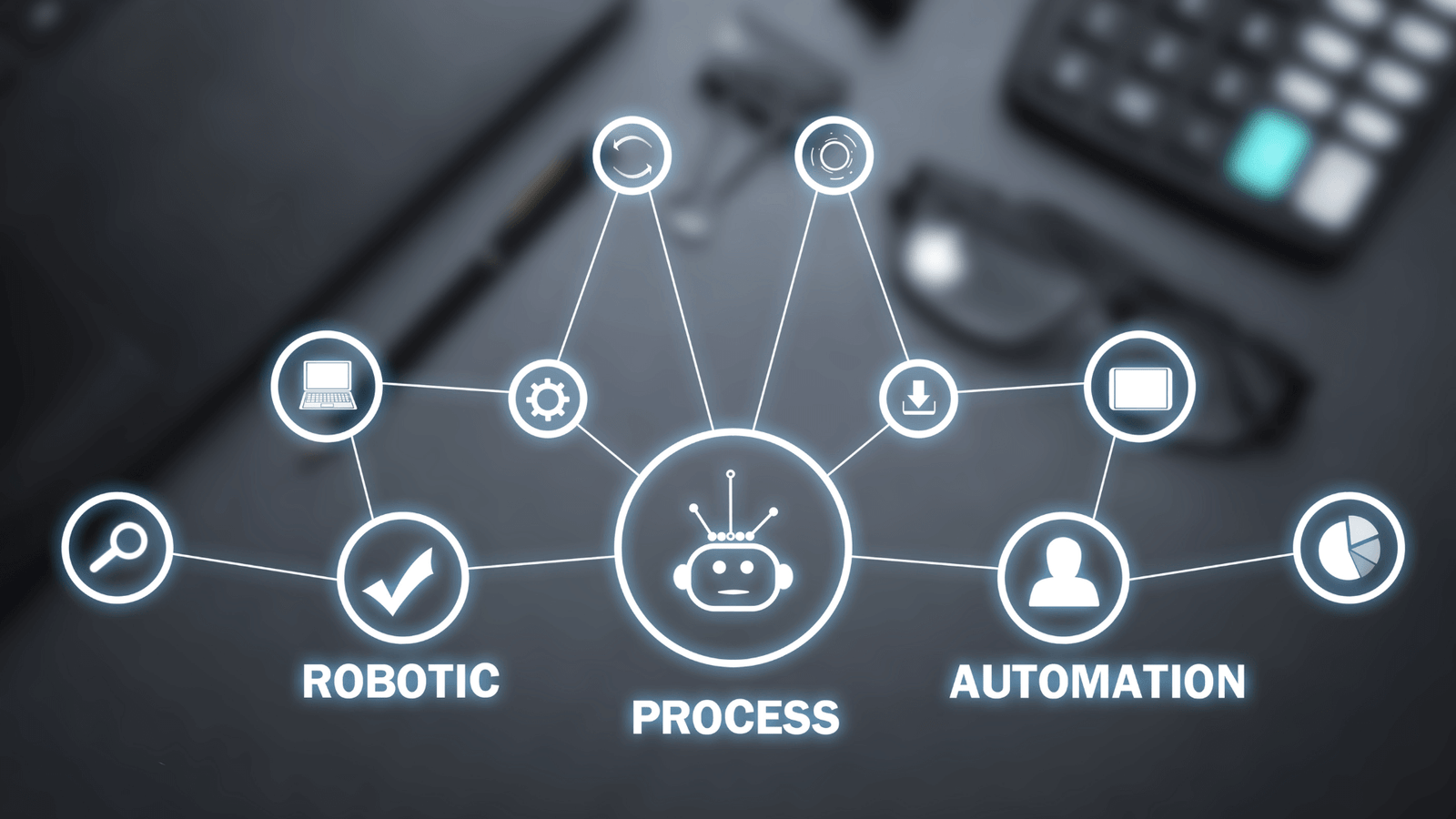The accounting industry stands at the precipice of a technological revolution. Artificial Intelligence (AI) is no longer a futuristic concept, it’s actively transforming how accounting firms operate, deliver services, and create value for clients. From automating routine tasks to providing predictive insights, AI is becoming an indispensable tool for forward-thinking accounting professionals.
Automated Data Entry and Document Processing

Accounting firms are experiencing unprecedented efficiency gains through AI-powered document processing and data entry automation. Machine learning algorithms can now extract financial data from invoices, receipts, bank statements, and tax documents with remarkable accuracy.
Key Benefits:
- 95% reduction in manual data entry time
- Enhanced accuracy with error rates below 0.5%
- Faster processing of high-volume transactions
- Improved compliance through consistent data handling
Leading firms utilize Optical Character Recognition (OCR) combined with Natural Language Processing (NLP) to automatically categorize expenses, match invoices to purchase orders, and update accounting systems in real-time. This transformation allows accounting professionals to focus on higher-value advisory services rather than time-consuming data entry tasks.
Intelligent Audit and Risk Assessment

AI is revolutionizing audit processes by enabling continuous monitoring and risk assessment. Advanced algorithms analyze vast datasets to identify anomalies, patterns, and potential fraud indicators that human auditors might miss.
Revolutionary Applications:
- Predictive risk modeling using historical data patterns
- Automated anomaly detection in financial transactions
- Real-time compliance monitoring across multiple jurisdictions
- Enhanced fraud detection through behavioral analysis
Machine learning models can process millions of transactions simultaneously, flagging unusual patterns and potential discrepancies for human review. This capability significantly reduces audit time while improving detection accuracy by up to 85%.
Predictive Financial Analytics and Forecasting

Modern accounting firms are leveraging AI to provide clients with sophisticated predictive analytics and financial forecasting capabilities. These tools analyze historical data, market trends, and economic indicators to generate accurate financial projections.
Transformative Features:
- Cash flow forecasting with 90% accuracy rates
- Budget variance analysis and recommendations
- Market trend identification and impact assessment
- Scenario planning for strategic decision-making
AI-powered forecasting models help businesses make informed decisions about investments, expansion plans, and resource allocation. Firms offering these services report increased client retention rates and higher-value service engagements.
Automated Tax Preparation and Compliance

Tax preparation represents one of the most successful AI implementations in accounting. Intelligent systems can automatically prepare tax returns, identify deductions, and ensure compliance with complex tax regulations across multiple jurisdictions.
Breakthrough Capabilities:
- Automated tax return preparation for individuals and businesses
- Deduction optimization through intelligent analysis
- Real-time compliance checking against current tax laws
- Multi-jurisdiction tax planning and preparation
AI tax software can process complex tax scenarios, including international transactions, partnership distributions, and corporate restructurings. This automation reduces preparation time by 70% while minimizing compliance risks.
Enhanced Client Communication and Support

AI-powered chatbots and virtual assistants are transforming client communication in accounting firms. These intelligent systems provide 24/7 support, answer frequently asked questions, and route complex inquiries to appropriate professionals.
Communication Enhancements:
- Instant response to client inquiries
- Personalized service recommendations based on client history
- Automated appointment scheduling and follow-ups
- Multilingual support for diverse client bases
Advanced chatbots can handle routine client requests, schedule appointments, and provide basic financial information, freeing accounting professionals to focus on complex advisory services. Client satisfaction scores improve significantly with AI-enhanced communication systems.
Intelligent Financial Planning and Advisory Services

AI is enabling accounting firms to offer sophisticated financial planning and advisory services traditionally reserved for large investment firms. Machine learning algorithms analyze client financial data to provide personalized recommendations and strategic insights.
Advisory Enhancements:
- Personalized investment recommendations based on risk tolerance
- Retirement planning optimization using predictive modeling
- Debt management strategies tailored to individual circumstances
- Business growth planning with data-driven insights
These AI-powered advisory services help accounting firms expand their service offerings and increase revenue per client while providing valuable insights that drive business growth.
Streamlined Accounts Payable and Receivable Management

AI is revolutionizing accounts payable and receivable processes through intelligent automation and predictive analytics. These systems can automatically process invoices, predict payment behaviors, and optimize cash flow management.
Process Improvements:
- Automated invoice processing and approval workflows
- Payment behavior prediction and collection optimization
- Dynamic credit risk assessment for new clients
- Cash flow optimization through intelligent scheduling
AI-powered AP/AR systems reduce processing time by 80% while improving accuracy and providing valuable insights into customer payment patterns and credit risks.
The integration of AI in accounting firms represents more than a technological upgrade—it’s a fundamental transformation that’s reshaping the entire industry. Firms that embrace these technologies position themselves for sustained growth, improved client satisfaction, and competitive advantage in an increasingly digital marketplace.
The seven applications outlined demonstrate AI’s vast potential to enhance efficiency, accuracy, and service quality. From automated data processing to predictive analytics, these technologies enable accounting professionals to focus on high-value advisory services while delivering superior client experiences.
Success in this AI-driven landscape requires strategic planning, careful implementation, and ongoing investment in technology and training. Firms that act decisively will thrive in the new era of intelligent accounting services, while those that hesitate risk falling behind in an increasingly competitive market.
Frequently Asked Questions
Q: How much does AI implementation cost for accounting firms?
A: Implementation costs vary significantly based on firm size and complexity. Small firms can start with basic AI tools for $500-2,000 monthly, while enterprise solutions may require $10,000-50,000 monthly investments. However, most firms report ROI within 6-18 months through increased efficiency and expanded service offerings.
Q: Will AI replace human accountants?
A: AI augments rather than replaces human accountants. While AI handles routine tasks and data processing, human professionals remain essential for complex analysis, strategic planning, and client relationships. The role evolves toward higher-value advisory services.
Q: What are the biggest challenges in AI adoption for accounting firms?
A: Primary challenges include data quality issues, staff training requirements, regulatory compliance concerns, and initial implementation costs. Successful firms address these through phased rollouts, comprehensive training programs, and careful vendor selection.
Q: How can small accounting firms compete with AI-powered larger firms?
A: Small firms can leverage cloud-based AI solutions that require minimal upfront investment. Focus on specialized niches, personalized service, and partnerships with AI technology providers can help smaller firms compete effectively.

